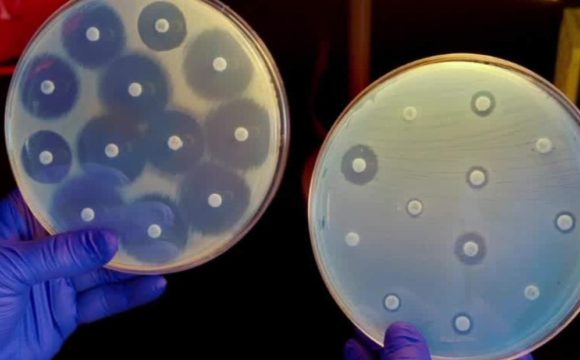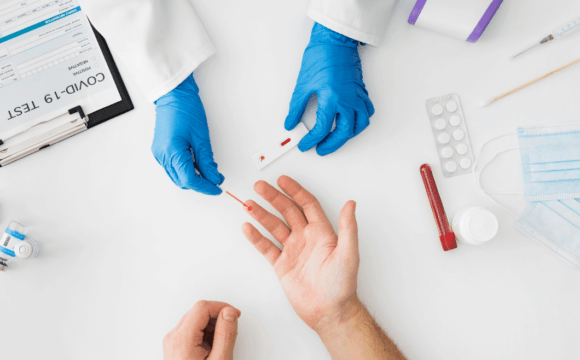The COVID-19 pandemic brought difficult times around the globe. The pandemic led to more than 2.64 million deaths globally. Since the outbreak, in December 2019 many types of research were conducted to find possible cures. Through numerous researches, a few therapies have been discovered that have the capacity to block SARS-CoV-2 replication.
In the latest studies carried out by Long Chi Nguyen and colleagues from the University of Chicago, researchers suggest cannabidiol (CBD) and its metabolite 7-OH-CBD can effectively block SARS-CoV-2 infection even at early and in the later stages. The mechanism follows through the activation of IRE1α RNase and interferon pathways. The preclinical studies put forward that the CBD treatment has helped reduce the concentration of viral species in the lungs and nasal turbines of K18-hACE2 female mice infected with SARS-CoV-2.
Cannabidiol is a member of the cannabinoid class of natural products produced by Cannabis sativa. Cannabis plants or materials derived that contain 0.3% or less of the tetrahydrocannabinol (THC) and typically have relatively high CBD content is referred to as hemp.
CBD also restrained the replication of SARS-CoV-2 in human Calu3 lung and Vero E6 kidney epithelial cells of monkeys. During the studies in patients, the consumption of 100 mg/ml of cannabidiol revealed a decrease in the SARS-CoV-2 positive tests at the time of COVID-19 testing.
As per the researchers, apart from cannabidiol (CBD), no other closely related CBD counterparts like tetrahydrocannabinol (THC), cannabidivarin (CBDV), cannabichromene (CBC), cannabidiolic acid (CBDA) or cannabigerol was able to reduce the replication of SARS-CoV-2 infection. However, the combination of cannabidiol (CBD) with tetrahydrocannabinol (THC) (1:1) suppressed the efficacy of CBD. Also, CBD- 7-hydroxy-cannabidiol (7-OH-CBD), a metabolite of CBD was efficient in inhibiting the SARS-CoV-2 replication rates in A549 angiotensin-converting enzyme 2 (ACE2) cells at a non-toxic level.
Researchers do not recommend the consumption of commercially available products of cannabidiol to treat or prevent COVID-19 infection. These studies were carried out with specifically formulated doses of high purity of CBD.
The CBD treatment follows the mechanism of interfering with the pathways both directly and indirectly to activate the host immune response to the SARS-CoV-2 pathogen. The interferons successfully inhibit the replication of SARS-CoV-2. Upon hyperactivation with extreme ER stress, IRE1α’s RNase activity leads to the endonucleolytic decay of many ER-localized mRNAs (RIDD) which leads to the activation of RIG-I and interferons. The XBP1 splicing showed that the SARS-CoV-2 induces the kinase activity of IRE1α, but does not activate its RNase activity. CBD effectively induces the RNase activity of IRE1α which can successfully degrade viral RNA and the induction of interferons by the RNA fragments.
However, it is not proven yet if the antiviral properties of CBD help in the mechanism of reduction of SARS-CoV-2 replication. Further investigations are required in this case.
CBD curbs cytokine activation in response to a viral infection which reduces the possibilities of immune cell recruitment and subsequent cytokine growth within the lungs and other affected tissues of the infected body. Thus, CBD is not only an antiviral agent but an effective aid to protecting the host body from the overactive immune response in the later stages of infection.
Cannabidiol has only minor side effects such as dry mouth, diarrhoea, drowsiness, reduced appetite, and fatigue. CBD has numerous advantages and the potential to inhibit the replication of SARS-CoV-2. CBD is widely available as food without restrictions with an additive of THC content less than 0.3%. With the advanced formulation and delivery methods, CBD can be used prophylactically in the treatment and prevention of the COVID-19 virus. Unlike the available Remdesivir or other medications for COVID-19, CBD can be administered without injections and a traditional hospital setting.
Reference:
https://www.science.org/doi/10.1126/sciadv.abi6110










